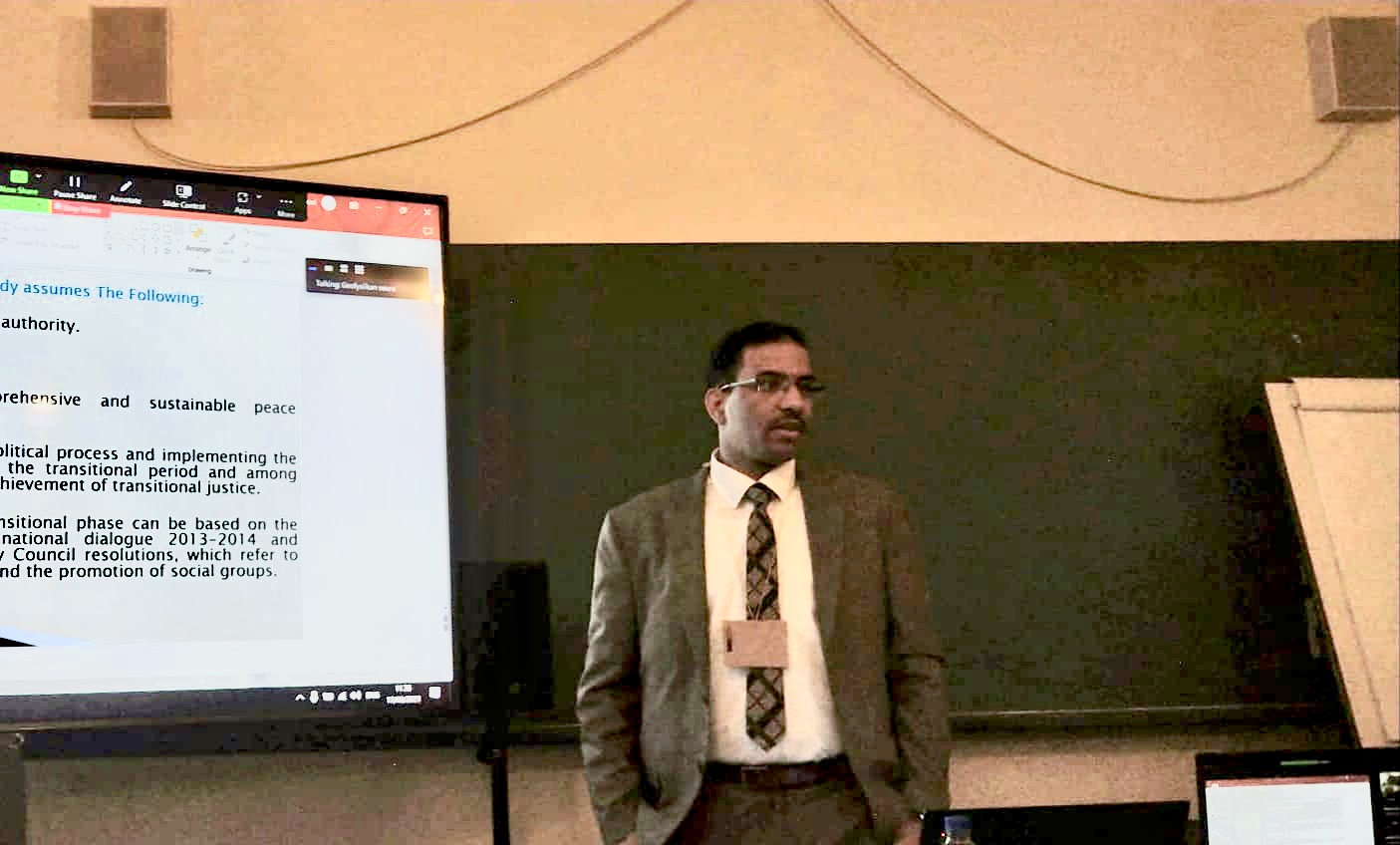Research Paper by Abaad Consultant at the Development Days Conference 2023 in Helsinki Recommends Restoring the State and Applying the Rwandan Transitional Justice Model in Yemen

Abaad Consultant, Dr. Adel Dashela, presented a research paper at the "Development Days Conference 2023: Conflicts and Development Revisited — Prospects for Peace in Times of Emergency" held in the Finnish capital, Helsinki. The conference was organized by the Finnish Society for Development Research (FSDR) in cooperation with the Finnish University Partnership for International Development (UNIPID) and the Faculty of Social Sciences, University of Helsinki.
The paper discussed transitional justice in post-war Yemen from a social perspective, focusing on the main constituents of the Yemeni society, including the youth, women, the tribe, and other constituents.
Dr. Dashela's paper was the only participation by a Yemeni researcher in the conference. The Abaad consultant stated that an important question was raised during the discussion; namely, why did the previous reconciliations and agreements fail to achieve security and peace in Yemen, but rather, were merely preludes to new rounds of violence that Yemen still suffers today?
In his paper, Dr. Dashela points out that justice cannot be realized without ending the war, restoration of the Yemeni state apparatus, full political transition, and the stabilization of the pillars of the Yemeni state. He underscores the possibility of building on the current local, regional and international legal references to ensure reforming state institutions in the wake reaching national reconciliation. Only then can transitional justice be implemented.
Dr. Dashela defines transitional justice in Yemen as "reaching tangible national reconciliation, so that a relapse to violence is ruled out."
The Abaad paper at the Development Conference 2023 also deals with transitional justice mechanisms that guarantee a successful political transition in Yemen, such as compensation of the victims, the compensations for the damaged incurred, restructuring the security, judicial and other state apparatus in a modern way, and engaging all constituents across the political and social spectrum.
Dr. Dashela's paper focuses on obstacles to justice in post -war Yemen, including the conflicting agendas of local forces, possession of arms by armed groups, the apprehensions of transitional justice by the various forces involved in the conflict, and the lack of social awareness of the importance of transitional justice.
The paper emphasizes that the establishment of justice and the rule of law in Yemen requires restoration of the institutions of the Yemeni state, and engaging women, youth and other tribal and social constituents in the enforcement of transitional justice. It argues that transitional justice procedures are not only in the interest of the victims, but can also provides a safe way out for the perpetrators if they acknowledge their crimes, apologize and undertake not to commit such offences anymore and to pay reasonable damages to the victims.
The paper concludes with some recommendations and proposals for Yemeni policymakers and international institutions working in the field of transitional justice. Key recommendations include Yemen's need for international, national and societal support similar to that provided in Rwanda to address the aftermath of the war through transitional justice.
It is noteworthy that Dr.Dashela is the only Yemeni researcher who participated in the two-day conference, which comprised a large number of researchers and academics from different countries. Participants were divided into nine groups that discussed civil society issues, democracy, justice, development, peace, crises, displacement, the reemergence of populism and current conflicts.






